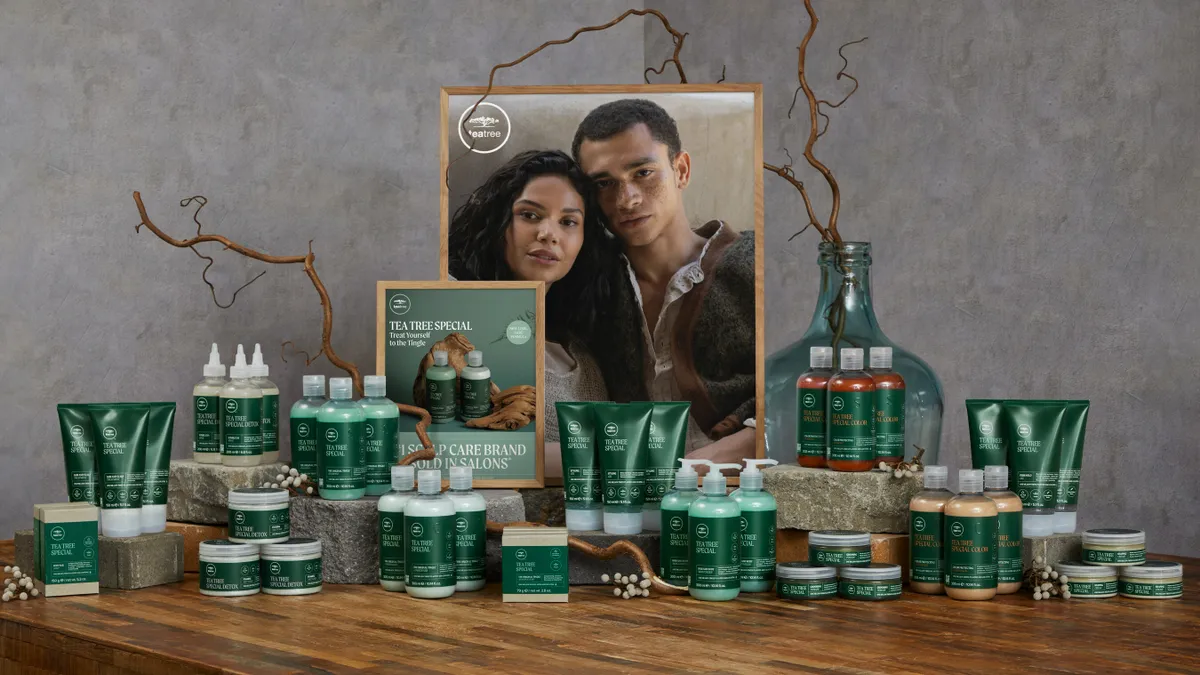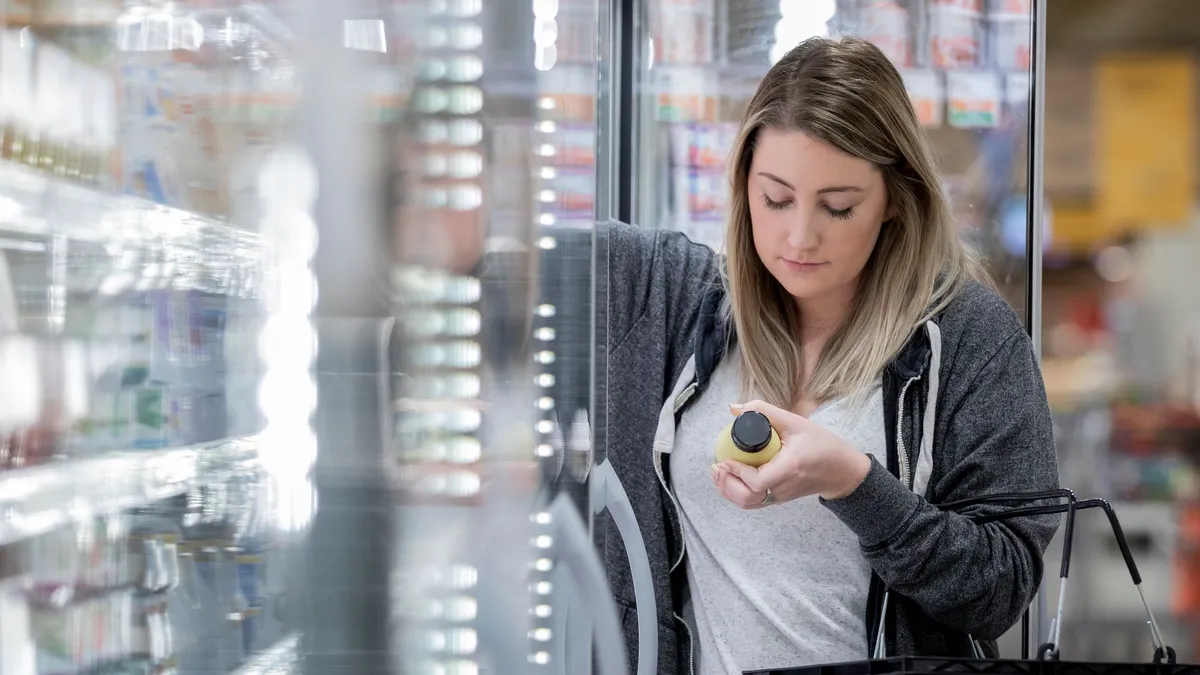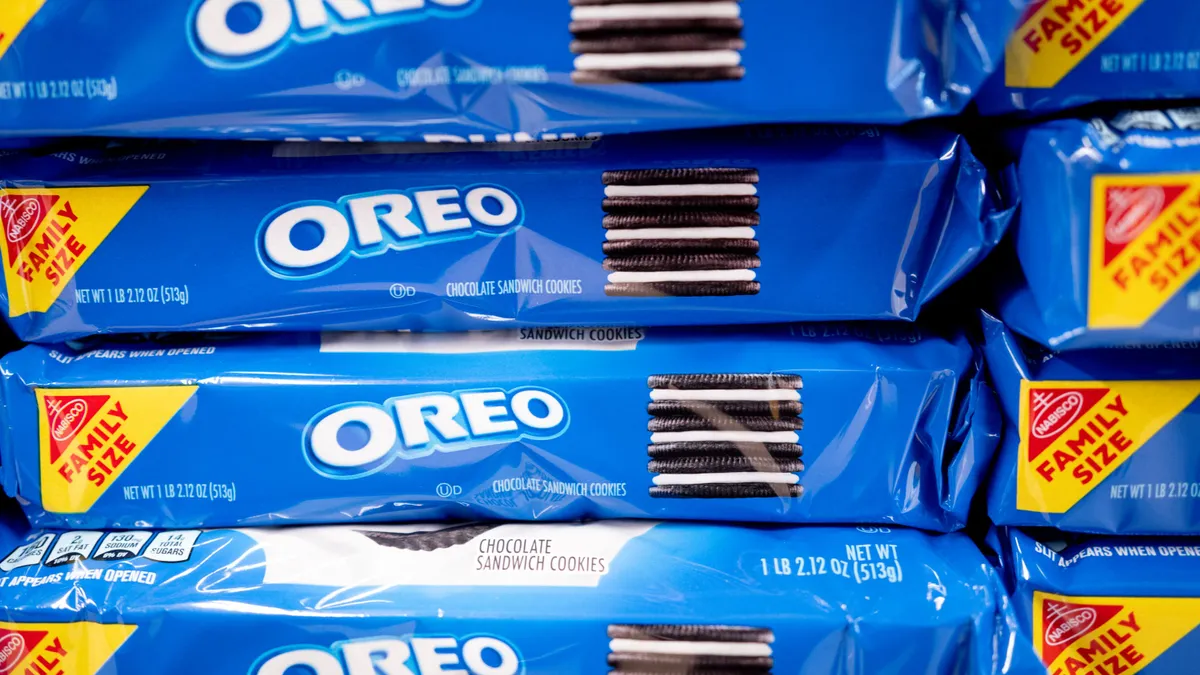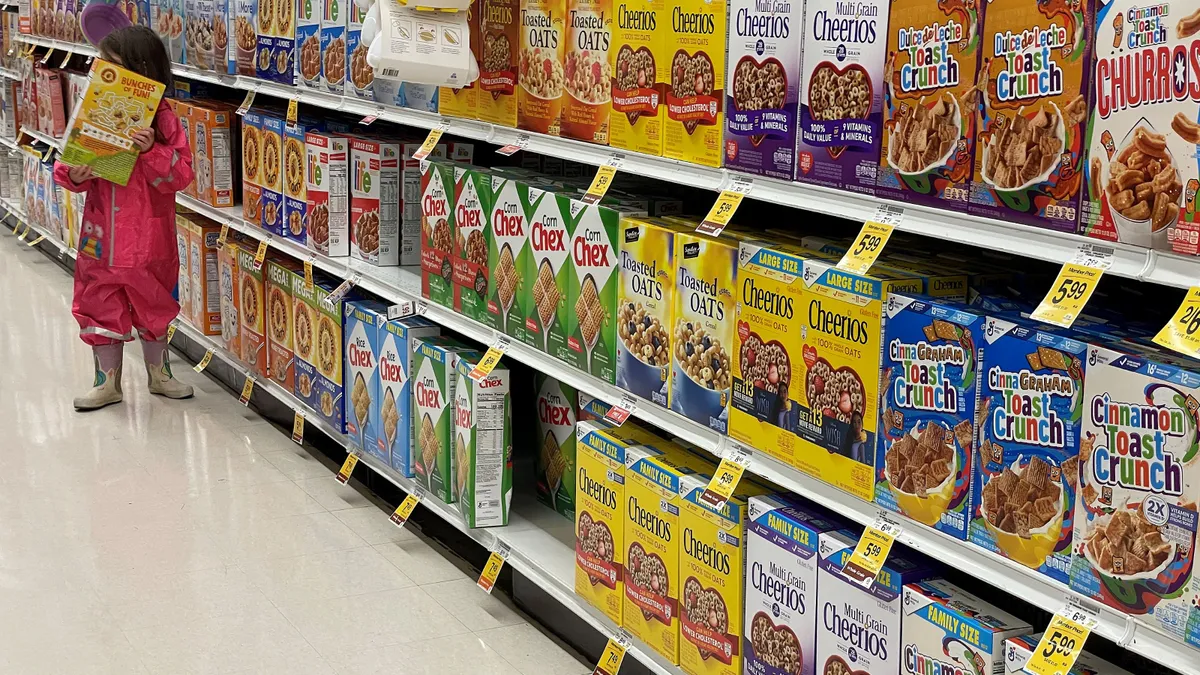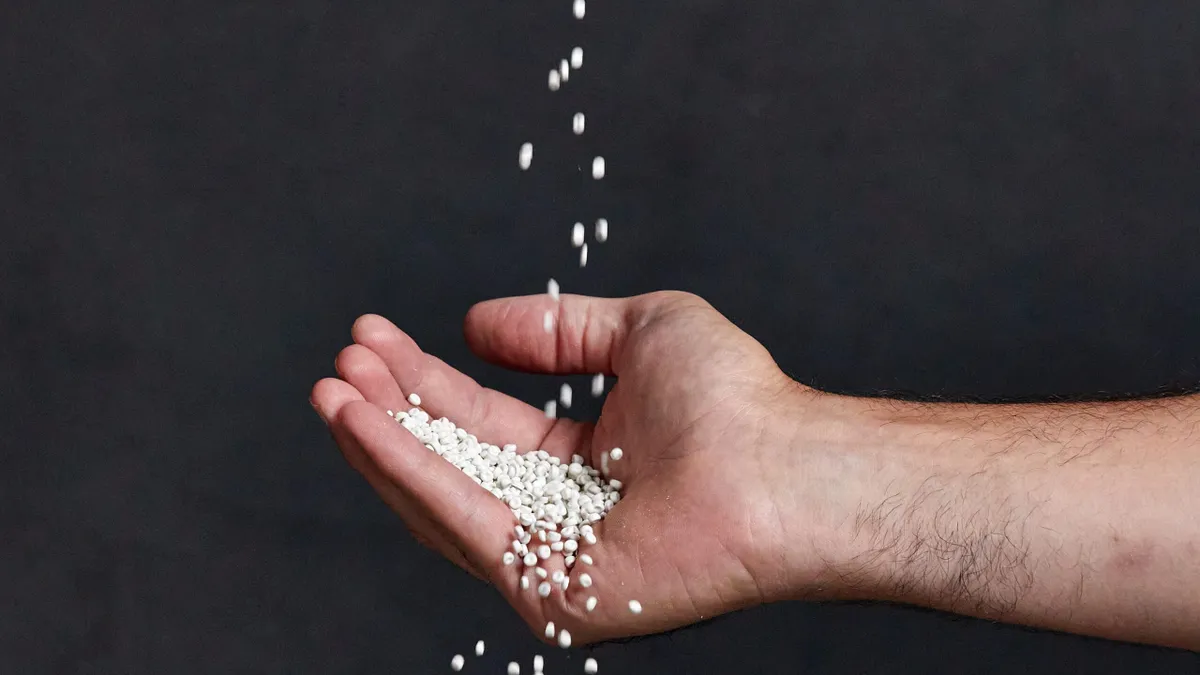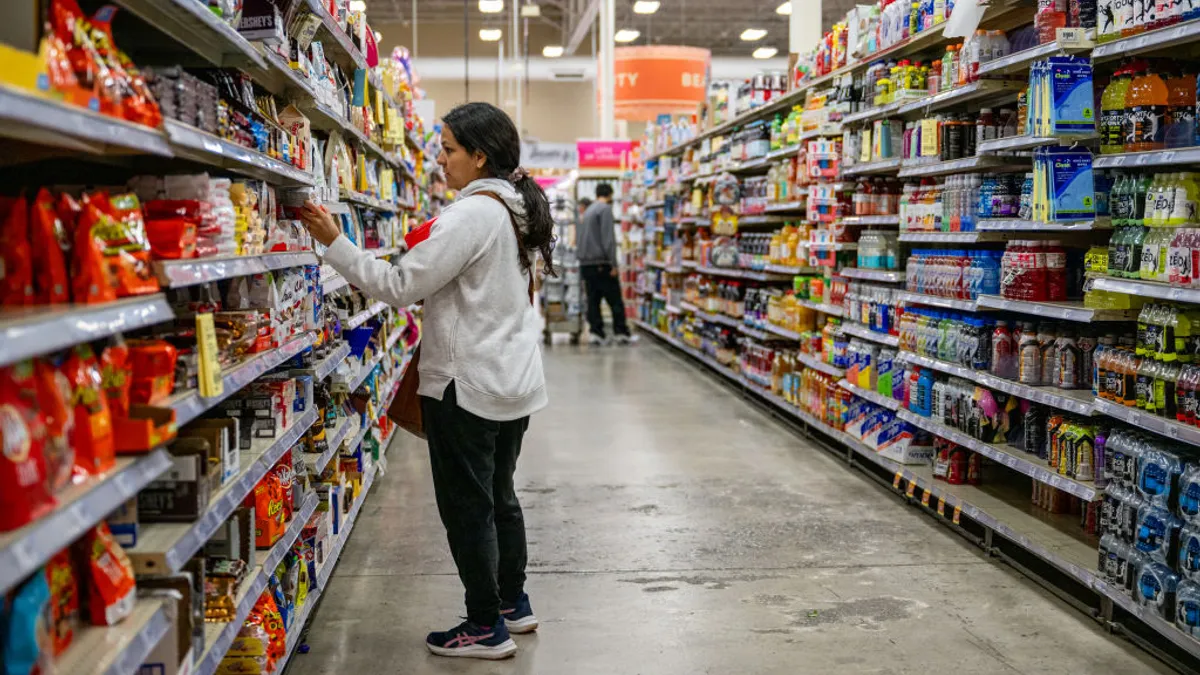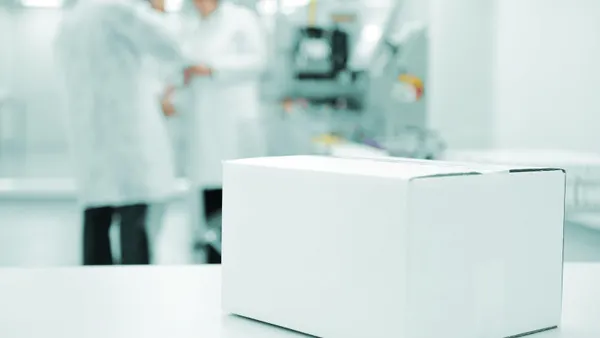Companies constantly innovate with technology and redesign their packaging to get better performance, improve marketability and enhance sustainability. Here’s a look at five recent packaging product launches or redesigns on Packaging Dive’s radar.
Spilling the tea on sustainability
John Paul Mitchell Systems is revamping the packaging for its Tea Tree line of hair care products with a new look and material tweaks to enhance their sustainability profile.
Plastic bottles and jars are now made with 100% PCR — excluding caps, closures and pumps — and the tubes are made with 25% PCR. Tea Tree Special is now made in reusable aluminum bottles, and the refill pouches are made with 75% less plastic than liter bottles. The company says its new labels do not need to be removed prior to recycling. And the Special Shampoo also now comes in a bar form that does not have any plastic packaging.
These changes align with the company’s sustainability goals, including reducing virgin plastic use, reducing its carbon footprint and reducing the amount of waste sent to landfill, the company said in a news release.
“We believe that sustainability is not a single initiative, but a fundamental principle that must guide everything we do,” CEO Michaeline DeJoria said in the news release.
In addition to updated imagery, shampoo and conditioner bottles feature a raised ‘S’ and ‘C’ to improve differentiation between the two products for people with visual impairments.
The new packaging is currently available at all worldwide retailers and distribution centers, and it will roll out for additional product categories throughout the year.
Wrap n’ roll
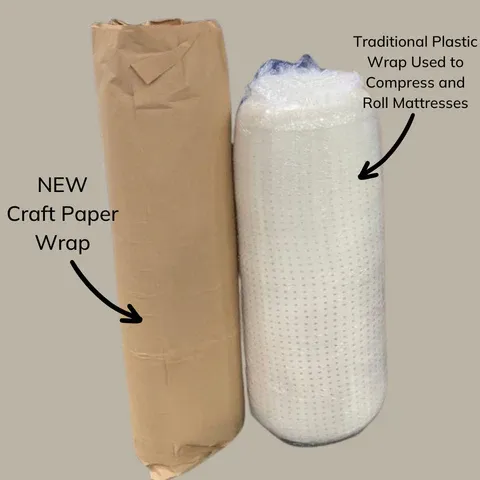
Essentia Organic Mattress will stop wrapping its products in plastic for shipping and switch to kraft paper for its roll pack process. The company said in a news release that recyclable, compostable and biodegradable materials now make up the inner and outer packaging, and extensive bleaching processes are not used for manufacturing the kraft paper. It reports that all packaging materials are made from 100% recycled paper, reducing the use of virgin materials.
“Our commitment is also in the supply chain as we only source from sustainably managed forests,” Essentia said in a blog post. “The production of [kraft] paper has a lower carbon footprint compared to plastic production, especially when renewable energy sources are used in manufacturing and when the paper is sourced from nearby forests to reduce transportation emissions.”
The company also noted that the kraft paper has a high tensile strength that prevents tears or product damage. Plus, the paper allows the mattress to breathe, which prevents moisture buildup that can cause mold or mildew.
Essentia expects to ship all mattresses in the fiber packaging by autumn.
Collapsible crate
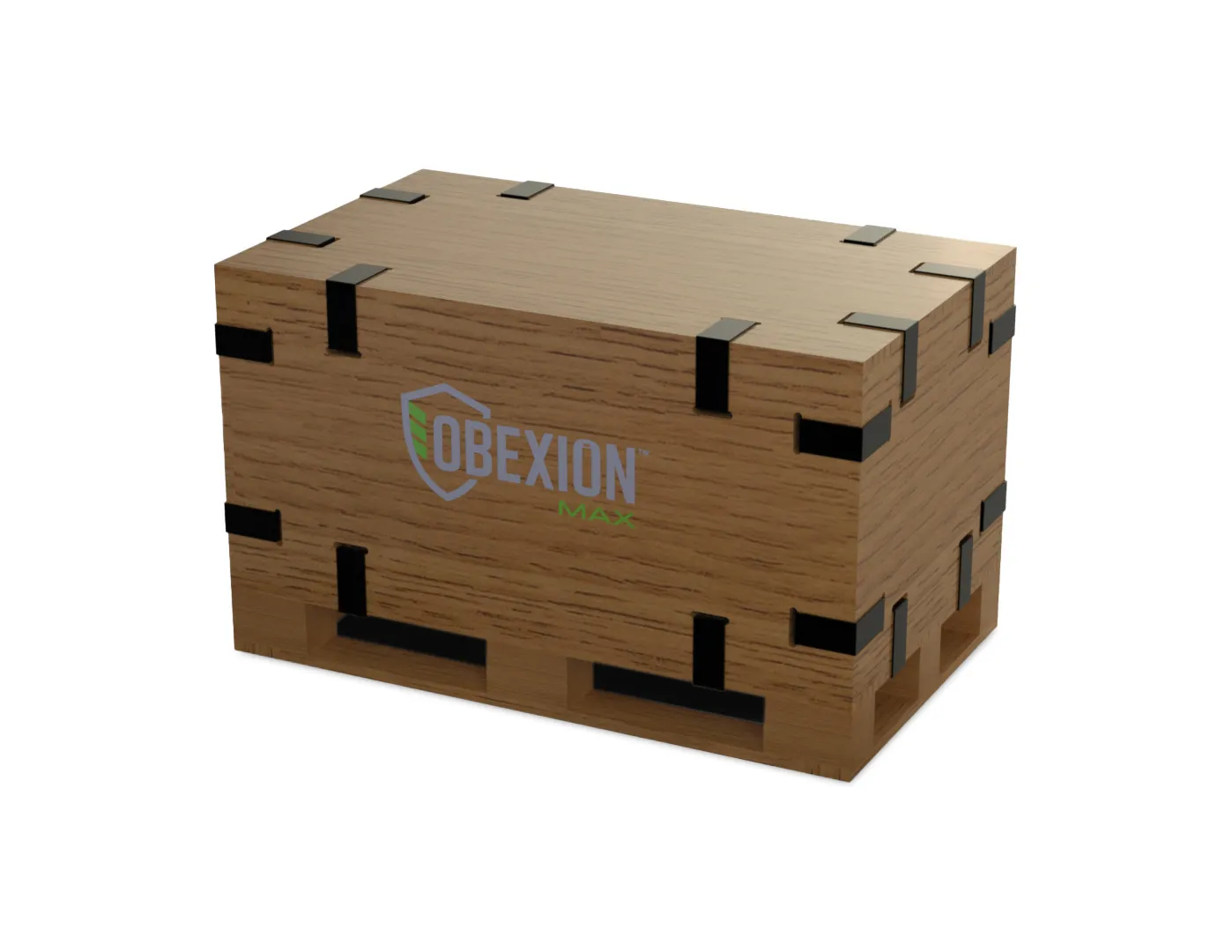
DGeo, the packaging division at Labelmaster, introduced collapsible, clippable wooden crates for transporting large lithium-ion batteries to its Obexion line. The flat-packed, stackable crates take up less space compared with other crates, thus requiring less warehouse and transportation space, according to a news release. It says the crates, which are produced by Action Wood 360, can be easily assembled and disassembled thanks to the metal clips; fasteners such as screws or nails aren’t needed. The companies call the crates a cost-efficient solution for safely and compliantly shipping the potentially dangerous batteries.
“Shipping large lithium batteries safely requires strong, durable and proven packaging,” Randy Blaylock, vice president business development at Action Wood 360, said in the news release.
Wine down weight
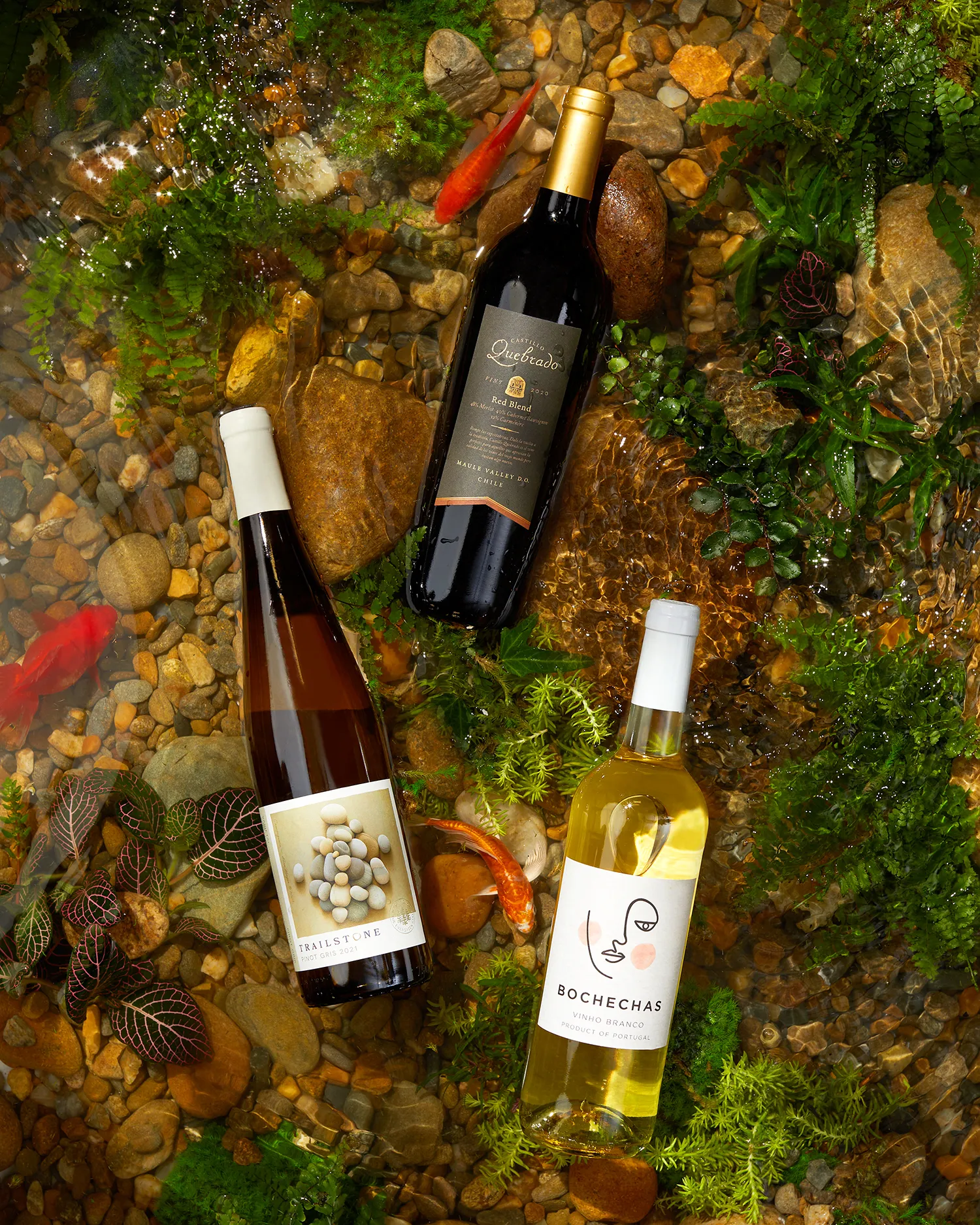
Wine company Firstleaf partnered with food and beverage packaging company Saxco to develop lighter glass bottles for its products. Firstleaf said in a news release that nearly all of its bottles now meet metrics set in the Sustainable Wine Roundtable’s Bottle Weight Accord, a U.K.-based initiative introduced in October that aims to reduce the weight of conventional 750 milliliter wine bottles from an average of 550 grams to 420 grams by the end of 2026.
"By establishing new benchmarks for packaging efficiency and environmental stewardship, we continue to be dedicated to delivering exceptional wines while preserving the planet for future generations,” Philip James, CEO at Firstleaf, said in the release.
In the bag
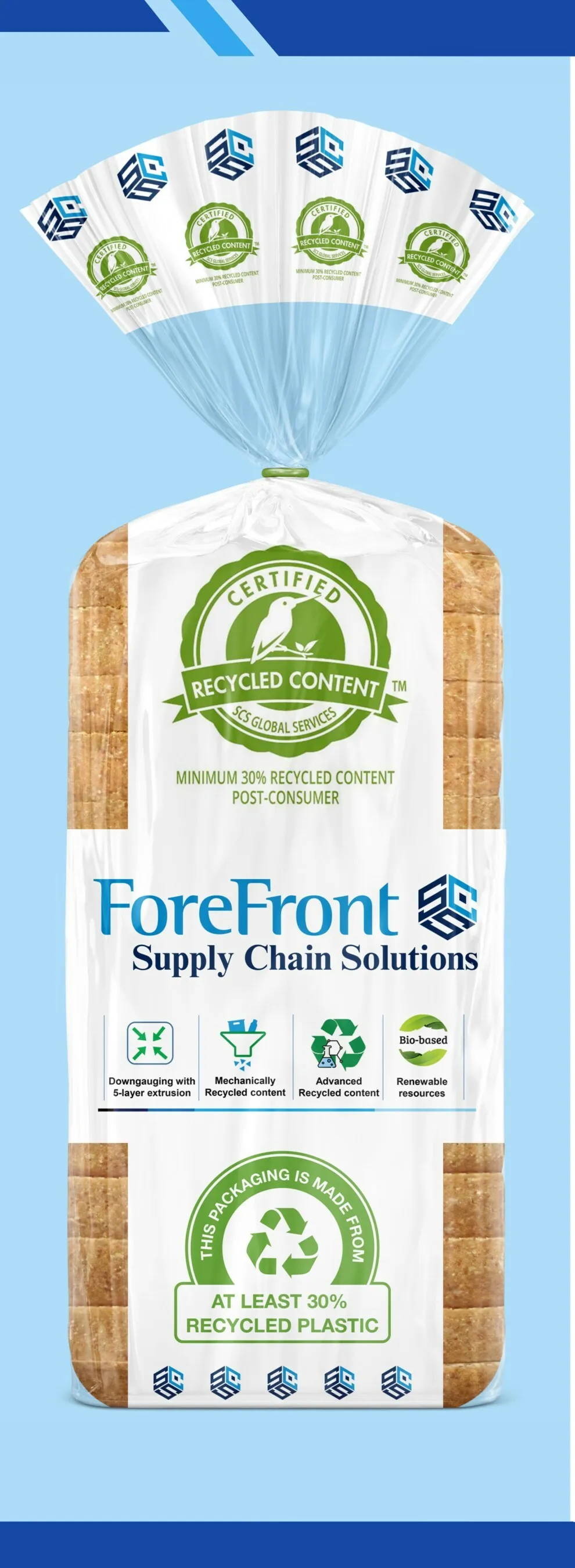
ForeFront Supply Chain Solutions introduced what it says is the nation’s first polyethylene bag with 30% postconsumer recycled content made from FDA-compliant resins. ForeFront says this is the highest level of PCR currently available in flexible food packaging.
The product supports food manufacturers that aim to meet recycled content requirements in emerging extended producer responsibility laws, the company said in a news release.
"Understanding the nuances of regulations can be challenging and time-consuming, which is where we can help," Crystal Skipworth, ForeFront's marketing supervisor, said in the release.
The bags received third-party certification from SCS Global Services, the company said in a news release, and the PCR can be combined with 10% postindustrial or biobased material.



